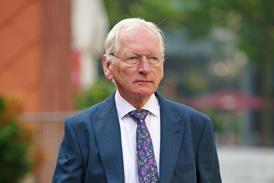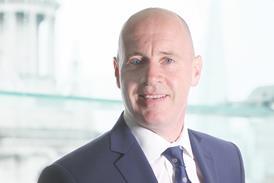A veteran solicitor has been struck off for making improper payments to prop up his collapsing firm – but unusually has escaped any costs penalty.
Richard Charles Boyd, a former partner with North Yorkshire Law, withdrew funds from the client account to keep his firm in business, preparing invoices worth almost £38,000 across seven probate estates and transferring the money without consent.
The Solicitors Disciplinary Tribunal further found that when the partnership collapsed, the firm no longer had SRA authorisations and Boyd was not able to operate as a sole practitioner, but he failed to disclose this to professional indemnity insurers and their brokers and misled them.
The SRA had submitted that in early 2020 the firm had been unable to make payments to former employees who were due money. A total of 11 loans coming to £243,000 were taken out over a six-month period but continued to suffer cashflow problems. By the end 26 February 2020, the firm held £13,000 in its accounts but needed to pay salaries of more than £36,000 and other payments before the end of the month.
Boyd prepared the invoices on 27 February 2020 against the seven estates without any of the clients having been informed. He subsequently denied this was done to cover office payments.
Boyd, a solicitor since 1980, admitted accounts rule breaches but submitted he always acted with integrity and honesty and denied the suggestion that he acted deliberately to pay staff wages and keep the firm open.
Following a five-day hearing, the tribunal found that he had acted dishonestly and there was no option but to strike him off. It was found that he was fully aware of the movement of the monies and was not entitled to do so, but proceeded anyway in order to address the firm’s financial issues.
The tribunal added: ‘The estate representatives had been caused significant distress in the three examples given in evidence. In the case of [one], this had included Mr Boyd trying to browbeat her into agreeing to a transfer which had already taken place without her knowledge on a false pretext and subsequently lying about his usual practice.’
The sanction resolved, the SRA then applied for almost £42,000 in costs and said that it could be added as a creditor in Boyd’s bankruptcy. The tribunal said time claimed for preparing the case was ‘excessive’ and that numerous errors were made in pre-hearing documents. The tribunal assessed the costs as a whole at £32,500 but noted that Boyd was unemployed and reliant on pension payments, with no assets to his name.
Based on these limited means, the tribunal made no order for costs, adding that the ‘reality was that he was in no position to pay a costs order now or at any time in the foreseeable future’.






























